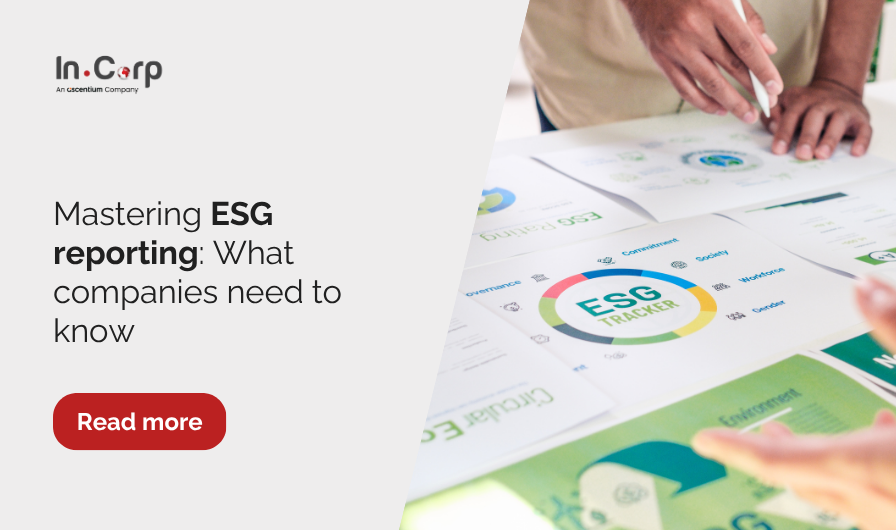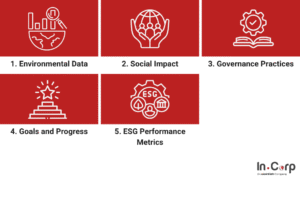Sustainability has become essential for modern business. Today’s customers and investors care about how companies affect the environment, handle social responsibilities, and govern their operations. ESG reporting plays a key role in clearly showing a company’s efforts in these areas.
But how do you create a good ESG report? This guide will walk you through everything you need, from understanding the basics to exploring real-life examples.
What is ESG reporting?
ESG reporting discloses data related to a company’s environmental, social, and governance practices. Beyond traditional financial reporting, it offers a broader view of a company’s operations, values, and long-term impact.
At its core, ESG reporting involves:
- Environmental: How a company manages its impact on nature. This includes energy use, carbon emissions, waste management, and resource conservation.
- Social: How it treats people, including employees, customers, suppliers, and communities. This includes labor practices, diversity, health and safety, and human rights.
- Governance: How a company is run based on its board structure, ethical practices, compliance, and transparency.
These reports will be shared with investors, regulators, customers, and the public. A well-prepared ESG report reflects a company’s commitment to sustainable growth and responsible management.
Why ESG reporting is essential for businesses
ESG reporting has quickly become a vital element of corporate strategy. But why does it matter so much?
1. Builds Stakeholder Trust
Transparent ESG disclosures help companies build credibility with investors, customers, regulators, and employees. Stakeholders want to know how businesses address climate change, social equity, and governance integrity.
2. Attracts Investment
More investors are prioritizing ESG performance when making decisions. A clear ESG report can attract responsible investment and open access to ESG financing.
3. Enhances Risk Management
By identifying and reporting, businesses can more effectively manage ESG risks, such as climate exposure, supply chain disruptions, and governance failures.
4. Improves Reputation and Brand Value
Companies that report on ESG matters show they care about more than profit. This improves public trust and strengthens brand loyalty.
5. Ensures Regulatory Readiness
As governments introduce ESG rules, early adoption of ESG reporting standards helps companies stay ready and avoid future compliance issues.
Read more: 7 ESG strategies for long-term business growth and impact
What to include in an ESG report?
A strong ESG report gives a complete picture of a company’s sustainability efforts. To be effective, it must include clear, relevant, and consistent information across three core areas:
1. Environmental Data
This covers how the company affects the environment. Common metrics include:
- Greenhouse gas emissions
- Energy and water usage
- Waste management and recycling
- Climate risk assessments and goals
2. Social Impact
This section focuses on how the company treats people and communities:
- Employee diversity and inclusion
- Health and safety practices
- Labor policies and working conditions
- Community engagement and philanthropy
3. Governance Practices
Governance reflects the company’s internal controls and ethical behavior:
- Board structure and diversity
- Executive compensation
- Anti-corruption policies
- Data privacy and compliance
4. Goals and Progress
Clear targets and updates on ESG initiatives help show progress and accountability. This could include carbon reduction targets or progress on workplace diversity.
5. ESG Performance Metrics
Use consistent, data-backed ESG metrics. These could be from existing standards or customized to fit the business.
Key ESG reporting standards and frameworks
Companies often align their ESG reports with established standards, which provide guidelines on what to report, how to measure impact, and how to present data. This ensures consistency and credibility.
1. Global Reporting Initiative (GRI)
The GRI Standards are among the most widely used. They help companies report their impacts on the economy, environment, and people in a standardized format.
2. Sustainability Accounting Standards Board (SASB)
SASB Standards focus on financial materiality. They help businesses disclose ESG issues that are most relevant to investors.
3. Task Force on Climate-related Financial Disclosures (TCFD)
TCFD offers guidance for reporting climate-related risks and opportunities. It shows transparency in how companies assess and manage risks.
4. International Sustainability Standards Board (ISSB)
Formed by the IFRS Foundation, the ISSB aims to unify ESG reporting globally, offering standards for consistent and comparable disclosures.
5. CDP (Carbon Disclosure Project)
CDP focuses on environmental reporting, especially climate change, water security, and deforestation.
6. UN Sustainable Development Goals (SDGs)
Though not a formal framework, many ESG reports align their goals with the UN SDGs to show their contribution to global sustainability efforts
Choosing the proper framework depends on your industry, stakeholder needs, and reporting goals. Some companies even use a combination to meet multiple requirements.
Key challenges of ESG reporting
One of the biggest challenges in ESG reporting is collecting accurate, reliable data. Companies often face gaps in information, inconsistent measurement methods, and difficulties in tracking ESG performance. This lack of standardization can lead to unclear reporting and reduced credibility. Ensuring data quality is essential for building trust with stakeholders.
Another major challenge is navigating the fast-changing ESG regulations and frameworks. Businesses must align with multiple global standards, which can be confusing and time-consuming. Companies must stay compliant by constantly adjusting.
Lastly, there’s the risk of greenwashing, where companies exaggerate or misrepresent their ESG efforts. To avoid this, businesses must ensure that their disclosures reflect real and measurable progress.
Shape a sustainable future with InCorp
Creating a solid ESG report helps your business earn trust and shows a genuine commitment to sustainability. Although ESG reporting can be challenging, it can be clear and compelling with the proper support.
InCorp Indonesia (An Ascentium Company) offers full support through ESG Advisory & Reporting services. We guide you through the process, help you meet global standards, and create impactful reports.
Please fill out the form below to let us handle your ESG reporting so you can stay focused on growing your business.
Get in touch with us.
What you'll get
A prompt response to your inquiry
Knowledge for doing business from local experts
Ongoing support for your business
Disclaimer
The information is provided by PT. Cekindo Business International (“InCorp Indonesia/ we”) for general purpose only and we make no representations or warranties of any kind.
We do not act as an authorized government or non-government provider for official documents and services, which is issued by the Government of the Republic of Indonesia or its appointed officials. We do not promote any official government document or services of the Government of the Republic of Indonesia, including but not limited to, business identifiers, health and welfare assistance programs and benefits, unclaimed tax rebate, electronic travel visa and authorization, passports in this website.



